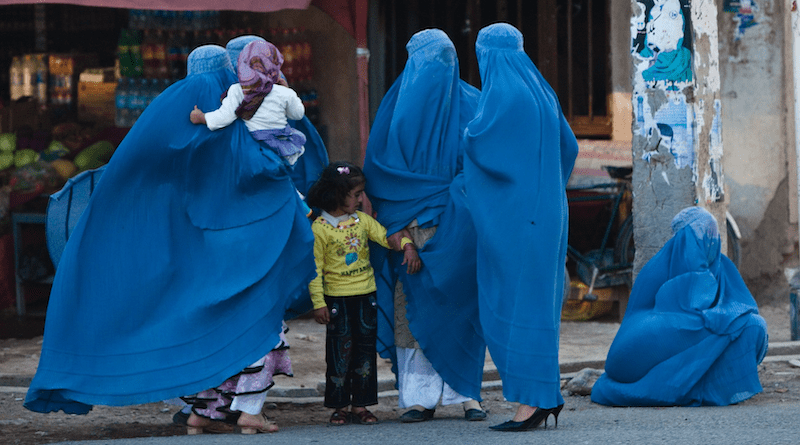Humanitarian Crisis: Alarming Increase In Civilian Casualties In Afghanistan Under Taliban Rule – OpEd
Since the Taliban takeover of Afghanistan in August 2021, the country has witnessed a surge in violence and a disturbing rise in civilian casualties.
The United Nations Assistance Mission in Afghanistan (UNAMA) recently released a report revealing the devastating impact of the conflict on Afghan civilians. The data collected indicates that over 1,000 civilians have been killed and 2,679 wounded between August 15, 2021, and May this year. These figures shed light on the dire humanitarian crisis unfolding in Afghanistan, despite a reduction in casualties compared to previous years of war.
The majority of civilian deaths were caused by improvised explosive devices, including suicide bombings in public places such as mosques, educational institutions, and markets. While armed fighting has decreased since the Taliban assumed control, security challenges persist, particularly from the Islamic State Khorasan province. The report highlights that the Taliban is responsible for the majority of attacks, and the deadliness of these incidents has escalated, resulting in a higher number of casualties.
UNAMA’s report reveals that more than 1,700 casualties, including injuries, were attributed to explosive attacks claimed by ISKP. The Taliban has taken steps to combat ISKP cells through various raids, but the threat remains a significant concern. The presence of multiple armed groups adds to the complexity of the security situation, exacerbating the risks faced by Afghan civilians.
In addition to the violence, Afghanistan is grappling with a severe financial and economic crisis. Donor funding has drastically decreased since the Taliban assumed power, leading to a scarcity of resources for medical care, financial support, and psychosocial assistance for the Afghan population. The current Taliban-led government has struggled to provide essential services, further exacerbating the suffering of the Afghan people.
Despite initial promises of a more moderate administration, the Taliban has imposed strict rules reminiscent of their previous rule in the late 1990s. The ban on girls’ education after the sixth grade and the restrictions on women’s participation in public life and employment have sparked international condemnation. These measures have raised concerns about the violation of human rights, particularly women’s rights, and have hampered the progress made in previous years towards a more inclusive society.
The UN report highlights the urgency of the situation in Afghanistan and the need for international support. While the Taliban-run government claims to prioritize security and combat terrorism, the international community remains cautious and has not officially recognized the Taliban administration. The UN and other humanitarian organizations continue to stress the importance of upholding human rights, providing assistance to those in need, and finding peaceful solutions to the ongoing crisis.
The alarming increase in civilian casualties in Afghanistan since the Taliban takeover demands immediate attention from the international community. The data presented by UNAMA underscores the urgent need for diplomatic efforts to address the humanitarian crisis and protect the rights of Afghan civilians. It is crucial to provide assistance, both financial and humanitarian, to alleviate the suffering of the Afghan people and work towards a sustainable and peaceful resolution. Only through collective action can we mitigate the devastating impact of the conflict and ensure a better future for Afghanistan.
Despite the gravity of the situation, the Taliban-run foreign ministry responded to the UN report by asserting that Afghanistan had long faced security challenges and that the situation had improved under their governance. However, their claims do not align with the ground reality and the concerns raised by international organizations and human rights advocates.
The report’s findings highlight the urgent need for the international community to step up efforts to address the crisis in Afghanistan. It is essential to provide crucial support to the Afghan people, particularly in terms of access to healthcare, education, and basic necessities. Adequate funding must be allocated to humanitarian organizations working on the ground to ensure the delivery of essential services to those in need.
Moreover, there is a pressing need for the international community to engage in diplomatic dialogue with the Taliban to address human rights concerns, including the rights of women and girls, freedom of expression, and the protection of minority groups. Pressuring the Taliban to adhere to international norms and standards is crucial for safeguarding the fundamental rights and dignity of all Afghan citizens.
In addition, efforts should be made to prevent the re-emergence of terrorist groups such as ISKP, which continue to pose a threat to the security and stability of Afghanistan. Cooperation between the international community and Afghan authorities is vital to effectively counter these extremist forces.
Ultimately, the international community must maintain a long-term commitment to Afghanistan, both in terms of humanitarian aid and diplomatic engagement. By addressing the immediate humanitarian needs and working towards a sustainable and inclusive future for Afghanistan, we can strive towards lasting peace and stability in the region. The Afghan people deserve support and solidarity during these challenging times, and it is incumbent upon the international community to stand by them in their pursuit of a better future.

